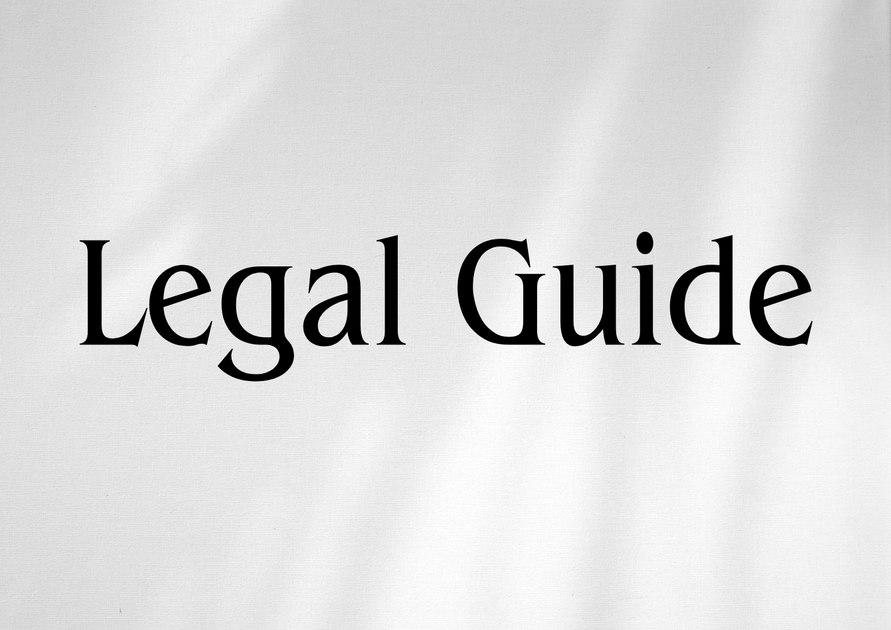Introduction: Navigating Cross-Border M&A in the UAE’s Evolving Legal Landscape
Cross-border mergers and acquisitions (M&A) have emerged as a dynamic force reshaping the corporate landscape of the United Arab Emirates (UAE). With its strategic geography, liberalised regulatory reforms, and drive for foreign direct investment, the UAE stands as a pivotal hub for regional and global business transactions. Yet the promise of opportunity is counterbalanced by unique complexities—particularly legal challenges born from the intersection of federal and emirate-level laws, recent updates to company and commercial codes, foreign investment reforms, sector-specific restrictions, and divergent dispute resolution frameworks.
2024 ushered in a host of legal updates profoundly impacting the structure and execution of cross-border M&A deals in the UAE. From amendments under Federal Decree-Law No. 32 of 2021 (the new UAE Commercial Companies Law, amended via Cabinet Resolution No. 109 of 2023, Federal Gazette) to the Foreign Direct Investment Law (Federal Decree-Law No. 19 of 2018), evolving Emiratisation requirements, enhanced economic substance rules, and compliance expectations under anti-money laundering (AML) regimes—the regulatory terrain has become more sophisticated, yet infinitely more navigable with the right expertise.
This in-depth guide distills the latest legal developments and their practical impact for UAE-based and international clients. Readers—ranging from corporate executives and business owners to legal officers and HR managers—will gain clear, actionable insights and strategies for executing and navigating cross-border M&A deals within the UAE, while remaining fully compliant, protected, and proactive in the face of ongoing legal evolution.
Table of Contents
- Understanding the UAE Legal Framework for M&A
- Recent Legislative Updates Shaping M&A in 2024
- Core Legal Challenges in Cross-Border M&A Transactions
- Case Study: Hypothetical Cross-Border Acquisition
- Risks of Non-Compliance and Robust Strategies
- Conclusion and Forward-Looking Guidance
Understanding the UAE Legal Framework for M&A
Duality of Federal and Emirate-Level Regulation
M&A transactions in the UAE are shaped by a vertically integrated legal framework: federal laws apply across the nation while each emirate retains authority over certain regulatory aspects (notably free zones and sectoral regulation). The key legal pillars include:
- Federal Decree-Law No. 32 of 2021: The new principal Companies Law, as amended in 2023 via Cabinet Resolution No. 109, governs the formation, operation, and restructuring of most UAE entities.
- Foreign Direct Investment Law (Federal Decree-Law No. 19 of 2018): This law, reinforced by Cabinet Resolution No. 16 of 2020, has broadened the scope for majority and full foreign ownership in many sectors, subject to a ‘negative list’ of strategic areas still restricted to UAE nationals.
- Sector-Specific Regulations: Activities in banking, insurance, telecommunications, and certain energy industries remain regulated by specialist governmental authorities (e.g. Central Bank of the UAE, Telecommunications and Digital Government Regulatory Authority).
- Free Zone Regimes: Each free zone (e.g. Dubai International Financial Centre, Abu Dhabi Global Market, JAFZA) operates under its own regulatory system, often with rules diverging from mainland law.
Key Regulatory Gatekeepers
| Authority | Role in M&A |
|---|---|
| Ministry of Economy | Oversight of commercial companies, foreign investment approvals |
| Competent Emirate Economic Department | Licensing and local approvals; implementation at emirate level |
| Central Bank of the UAE | Approval for transactions involving banking/finance entities |
| Securities and Commodities Authority | Oversight of public company M&A and capital markets |
| Free Zone Authorities | Approvals and compliance for entities within their remit |
As such, the legal architecture is multi-layered and can give rise to conflicts or compliance gaps, requiring meticulous legal structuring and multi-agency navigation.
Recent Legislative Updates Shaping M&A in 2024
Mainland Companies Law Amendments
Cabinet Resolution No. 109 of 2023 amended Federal Decree-Law No. 32/2021. Key points affecting cross-border M&A:
- Expanded foreign ownership rights: Most onshore companies (LLCs and JSCs) now permit up to 100% foreign ownership in non-strategic sectors, subject to local authority discretion.
- Mandatory notification and regulatory approval: Major acquisitions involving companies with state or public shareholdings require strict notification and approval protocols.
- Enhanced transparency requirements: Ultimate beneficial ownership (UBO) reporting made mandatory for acquirers, with fines for non-disclosure.
Foreign Direct Investment (FDI) Updates
While the ‘negative list’ still restricts foreign participation in activities like oil exploration, security, banking, and insurance, over 1,000 economic activities are now open for up to 100% foreign participation. This liberalisation is critical for structuring majority foreign acquisitions and joint ventures.
New Emiratisation Provisions
The UAE Cabinet continues to expand Emiratisation quotas, mandating increased UAE national participation in the private sector. The latest regulations (Ministerial Decision No. 279 of 2022, Ministry of Human Resources and Emiratisation) apply to companies with more than 50 employees, imposing annual quota increases and stepped penalties for breaches. These must be integrated into post-merger workforce planning.
Comparative Table: Key Developments 2015 vs 2025
| Issue | Pre-2015 Regime | 2024/2025 Regime |
|---|---|---|
| Foreign Ownership Limit | 49% (except free zones) | Up to 100% for most sectors |
| Mandatory Emiratisation | Limited to public sector and large entities | Mandated for private sector with stepped annual increases |
| UBO Disclosure | Rarely required | Mandatory in all M&A transactions |
| Competition Clearance | Limited SCA/Cabinet involvement | Mandatory filing for specific ‘Economic Concentration’ |
Core Legal Challenges in Cross-Border M&A Transactions
Foreign Ownership and Control Issues
While UAE law has gradually opened the door to foreign investment and control, several hurdles persist:
- Sectoral Restrictions: Foreigners remain excluded from strategic activities and must establish partnerships with UAE nationals or state-owned entities where required (as set in Cabinet Resolution No. 56 of 2021 ‘Negative List Highlights’).
- Director Nationality Requirements: Certain boards must retain UAE or GCC nationals, potentially affecting post-acquisition governance planning.
- Free Zone vs Mainland Structures: Free zones may permit 100% foreign ownership, but entities there often cannot trade directly with the mainland without a local agent.
Practical Consultancy Insights
- Early identification of ownership restrictions avoids aborted deals and sanctions. Always map target activities against latest local, federal, and sectoral lists.
- Clarify the extent of operational autonomy for foreign parties post-close. Ensure the new shareholding structure is explicitly documented and approved by the competent authority.
Due Diligence and Regulatory Filings
Due diligence in UAE cross-border M&A must go beyond routine financial and legal review to scrutinise:
- Ultimate Beneficial Owners (UBO): Establishing, documenting, and reporting all UBOs is now a mandatory condition (Cabinet Decision No. 58 of 2020). Failure triggers fines up to AED 100,000.
- Regulatory Approvals: Prior approval may be needed from the Ministry of Economy, local Economic Departments, sectoral regulators, or free zone authorities, especially where shares of public companies or licensed activities change hands.
- Anti-Trust/Competition Filing: Transactions giving rise to ‘Economic Concentration’ (>40% market share post-merger, as per Competition Law) must be notified. Penalties for omission can include voidance of the deal and fines upwards of AED 500,000.
- Tax Clearance: With the introduction of federal corporate tax (Federal Decree-Law No. 47 of 2022), acquirers must ensure no undisclosed tax liabilities transfer with the target.
Recommended Due Diligence Checklist Table
| Area | Key Issues |
|---|---|
| Corporate | Shareholder breakdown, licence status, constitutional docs |
| Regulatory | Approvals, sectoral compliance, negative list mapping |
| Tax | Outstanding liabilities, VAT/corporate tax status |
| Employment | Emiratisation quotas, contracts, legacy obligations |
| AML | Sanctions risk, UBO, source of funds |
Employment and Emiratisation Considerations
Acquirers face significant obligations regarding workforce transfer:
- Transfer of Employment: Under the UAE Labour Law (Federal Decree-Law No. 33 of 2021), employees are typically transferred with preserved rights and continuity of service—subject to consultation, notice, and approval.
- Emiratisation Compliance: M&A may impact the company’s Emirati-to-expatriate employee ratio. Post-deal integration must be planned to ensure quotas are met; otherwise, substantial monthly penalties may apply.
- Redundancy and Harmonisation: M&A could trigger restructuring and redundancies. Navigating lawful termination—respecting notice, gratuity, and anti-discrimination norms—is vital.
Competition and Economic Concentration
The reformed Competition Law (Federal Law No. 4 of 2012, as updated by Cabinet Resolution No. 13 of 2021) imposes:
- Mandatory Pre-Notification: Filing and clearance is required for transactions producing combined market shares exceeding 40%, or which may impede competition.
- Sector Exemptions: Certain sectors (e.g. telecoms, oil & gas, banking) are exempt from these controls but require their own separate consent process.
- Strict Penalties: Breaches may invalidate agreements and attract fines up to AED 5 million plus potential damages claims.
Process Flow Suggestion
Insert a process flow diagram here, showing the sequential steps: Target identification > Restricted activity mapping > Regulatory consultation > Due diligence > Regulatory filings > Closing and post-integration compliance.
Intellectual Property and Data Protection
- Ownership & Assignment: All IP (trademarks, copyrights, patents) must be validly registered and available for assignment. Third-party licensing must be identified pre-completion.
- Data Protection: Under Federal Decree-Law No. 45 of 2021 on Personal Data Protection, targets with large customer databases may require data transfer notifications and safeguards—especially where cross-border data flows are involved.
Dispute Resolution and Governing Law
Cross-border M&A parties must carefully select forum and law:
- Onshore UAE courts have exclusive jurisdiction over mainland companies, unless contracts validly specify arbitration.
- Offshore/free zone entities (e.g. in DIFC or ADGM) may elect English law, DIFC/ADGM courts, or arbitration as governing structures.
- Enforcement of foreign judgments and awards is governed by UAE Civil Procedure Code (Federal Law No. 11 of 1992, as amended). Treaty membership (notably the New York Convention on arbitration) facilitates recognition, but compliance with local rules is critical.
Anti-Money Laundering (AML) and Financial Crime Compliance
UAE M&A transactions now require robust source-of-funds verification and anti-money laundering processes:
- The Federal AML Law (Federal Decree-Law No. 20 of 2018, and Cabinet Decision No. 10 of 2019) specifies enhanced due diligence on acquisition targets and investors from ‘high-risk’ jurisdictions.
- Obliged to maintain records, file suspicious transaction reports, and ensure clean funds—failure can lead to administrative, civil, and criminal penalties against the acquirer and target.
Case Study: Hypothetical Cross-Border Acquisition
Background
A European technology conglomerate (‘Buyer’) seeks to acquire 85% of a UAE mainland software company (‘Target’), operating both onshore and in Dubai Internet City free zone.
Key Legal Issues and Resolutions
| Issue | Risks | Consultancy Solution |
|---|---|---|
| Foreign Ownership | Sector on positive list, but minimum local director required for certain contracts | Structure Board to retain one UAE national in compliance; document via new Articles |
| Data Transfer | Cross-border transfer of user data to EU HQ triggers consent and data law | Implement privacy notices and seek data subject consents pre-close |
| UBO Reporting | Buyer initially fails to disclose indirect beneficial ownership | Supplement UBO filings and self-report to Ministry of Economy |
| Emiratisation | Merger reduces ratio below quota for 2024 | Launch recruitment drive and apply for time-bound rectification to Ministry |
| Competition Clearance | Combined market share exceeds 40% | Early SCA notification and public consultation; amend deal structure to comply |
Lessons and Best Practices
- Begin with a comprehensive legal impact assessment mapping all regulatory touchpoints.
- Align the transaction timeline to allow for lengthy regulatory approval periods—especially for public company deals.
- Deploy a multidisciplinary team (legal, tax, HR, compliance) to mitigate risks on all fronts.
Risks of Non-Compliance and Robust Strategies
Key Risks of Non-Compliance
| Legal Area | Potential Penalties |
|---|---|
| Ownership Restrictions | Nullification of acquisition, criminal liability for parties |
| Competition Law | AED 500,000–5 million fines, void agreements, damages claims |
| UBO Non-Disclosure | Fines up to AED 100,000, suspension of business licence |
| AML Compliance | Administrative and criminal sanctions, reputational loss |
| Labour Law/Emiratisation | Up to AED 8,000 per month per unfilled Emirati position, licence cancellation |
Robust Compliance Strategies
- Legal Structuring: Build the M&A timeline to include all expected approval windows; avoid ‘warehousing’ deals prematurely before clearance.
- Due Diligence: Deploy thorough, multi-jurisdictional diligence teams, with particular focus on regulatory, AML, UBO, and tax issues. Supplement with forensic audits where red flags surface.
- Regulatory Engagement: Proactively consult with Ministry of Economy, Economic Departments, and specialist regulators at the earliest planning stages to clarify compliance requirements and obtain pre-transaction guidance.
- Post-Deal Integration: Prepare post-merger compliance plans for Emiratisation, tax, and data privacy. Schedule regular compliance audits in the first 12–18 months post-close.
Conclusion and Forward-Looking Guidance
The legal and regulatory sophistication of the UAE’s cross-border M&A market continues to deepen, opening unprecedented opportunity—provided risks are matched with expertise and proactivity. The expansion of foreign ownership rights, strengthened Emiratisation drives, and integration of global compliance standards underscore the UAE’s ambition to be a world-leading investment destination.
For businesses and investors, the imperative is clear: invest in early, comprehensive legal mapping; build robust relationships with regulatory stakeholders; prioritise transparent disclosure; and develop adaptive compliance architectures that evolve with the law.
In the years ahead, future updates—such as new digital asset regulations, further tax refinement, and regional harmonisation—will further shape the landscape. Clients are strongly advised to maintain a cycle of risk review and legal audit, supported by expert advisors, to remain ahead of the curve and capitalise on the UAE’s ongoing legal transformation.
For a detailed, transaction-specific analysis or to discuss bespoke structuring for your cross-border M&A venture in the UAE, consult our specialist legal team.




